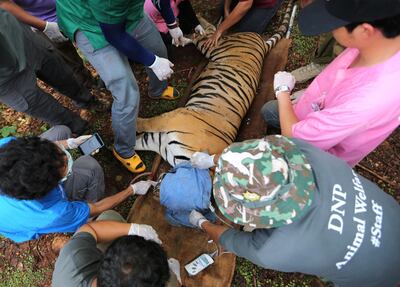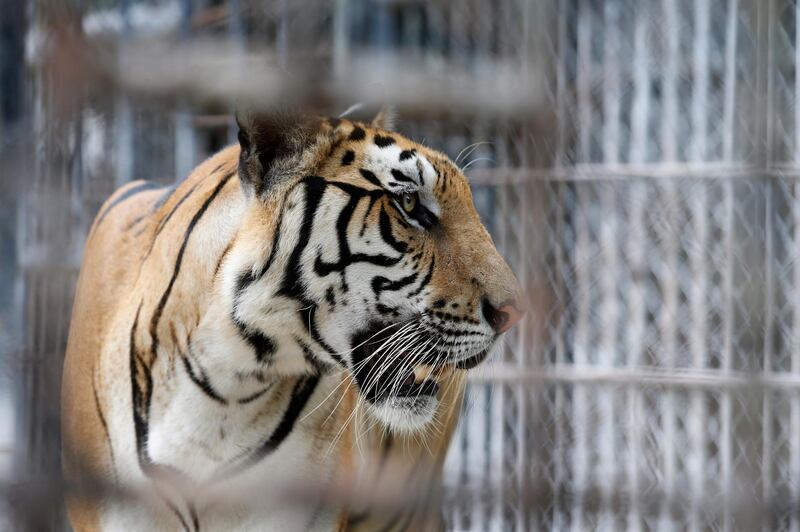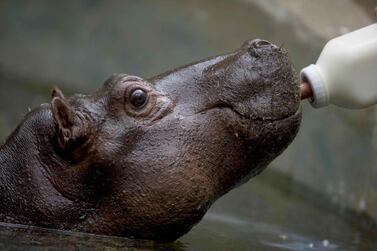More than half the tigers rescued three years ago from a Buddhist temple in Thailand where they served as a popular tourist attraction have died of disease, wildlife officials said Monday.
The tigers were vulnerable to illness because of inbreeding, leading to laryngeal paralysis causing respiratory failure, said national parks official Patarapol Maneeorn. Eighty-six of the 147 rescued tigers kept at government-run wildlife sanctuaries have died.
The DNA of all 147 confiscated tigers could be traced to six tigers who were the original breeding stock, said Mr Patarapol, head of the department’s Wildlife Health Management Division.

Such inbreeding "affects their well-being, resulting in disabilities and weakened health condition", he said. "And when they have weakened genetic traits, they also have problems with their immune system as well."
The temple in the western province of Kanchanaburi served for more than a decade as a de-facto zoo where tourists could feed tigers and pose for photos with them, despite concerns about possible mistreatment and suspicions of wildlife trafficking.
Police found tiger skins and teeth and at least 1,500 amulets made from tiger bones when they raided the temple, as well as 60 cub carcasses stuffed in freezers and in formaldehyde in jars.
Tiger parts, such as ground bones, are popular as traditional medicine in Asia. Tiger hides can sell for tens of thousands of dollars in China.
There are estimated to be more than 1,000 tigers in captivity in Thailand, but only about 200 in the wild out of a global wild population of about 4,000.
Mr Patarapol said Thai authorities would do their best to care for the surviving tigers.
“We are mobilising team members, increasing our readiness and adjusting our plan,” he said. “We will provide the best care possible.”






